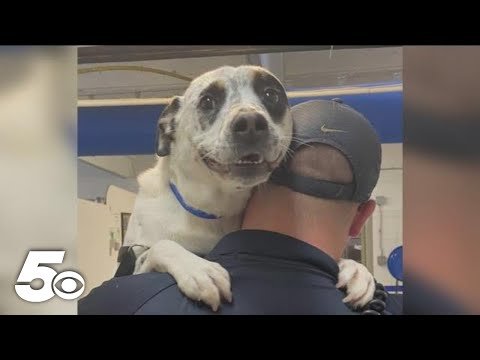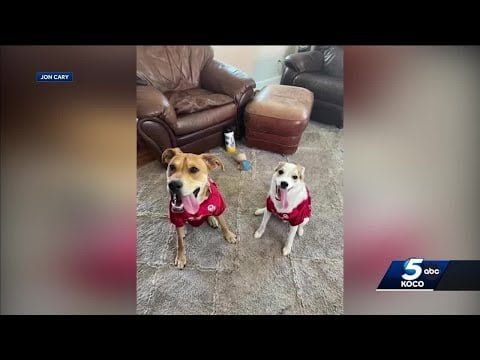Losing a beloved pet is a profound experience that can be as devastating as losing a human family member.
This article explores the complex emotions surrounding pet loss and offers guidance on navigating the grieving process.
Pet grief is a real and valid emotional experience that affects millions of people worldwide.
Understanding the nuances of this grief can help pet owners and their support networks navigate this challenging time with compassion and healing.
The Bond Between Humans and Pets
The connection between humans and their animal companions is unique and powerful.
Pets offer unconditional love, companionship, and often become integral parts of our daily lives.
This deep bond is why losing a pet can be so emotionally devastating.
Many people consider their pets as family members, making the loss even more significant.
Recognizing the Stages of Pet Grief
Like human grief, pet grief often follows a series of stages.
These stages can include denial, anger, bargaining, depression, and acceptance.
It’s important to remember that these stages are not linear and can overlap or repeat.
Everyone experiences grief differently, and there’s no “right” way to mourn a pet.
The Intensity of Pet Loss
For many, the pain of losing a pet can be as intense as losing a human loved one.
This grief is often compounded by the lack of societal recognition for pet loss.
Pet owners may feel isolated in their grief, unsure of how to express their emotions.
The absence of traditional mourning rituals for pets can make the grieving process more challenging.
Coping with Guilt and Regret
Many pet owners experience feelings of guilt after losing their animal companion.
This guilt may stem from decisions about euthanasia or perceived failures in pet care.
It’s crucial to remember that most pet owners always act in their pet’s best interest.
Focusing on the love and care provided throughout the pet’s life can help alleviate these feelings.
The Impact on Daily Life
The loss of a pet can disrupt daily routines and habits.
Simple tasks like feeding times or walks can become painful reminders of the loss.
The absence of a pet’s presence in the home can feel overwhelming.
Adjusting to this new reality takes time and patience.
Dealing with Unsupportive Reactions
Not everyone understands the depth of pet grief.
Some people may dismiss the pain with comments like “it was just a pet.”
These reactions can be hurtful and isolating for grieving pet owners.
It’s important to seek support from those who understand and validate your feelings.
Children and Pet Loss
For many children, losing a pet is their first experience with death.
This loss can be a significant and formative event in a child’s life.
It’s important to be honest with children about pet loss and allow them to grieve.
Involving children in memorial activities can help them process their emotions.
The Healing Power of Rituals
Creating rituals or memorials can be an important part of the grieving process.
This might include holding a small funeral, creating a photo album, or planting a tree in memory of the pet.
These activities provide a tangible way to honor the pet’s life and legacy.
Rituals can offer closure and a sense of continuity in the grieving process.
The Role of Support Groups
Pet loss support groups can be invaluable resources for grieving pet owners.
These groups provide a safe space to share feelings and experiences.
Connecting with others who understand can help alleviate feelings of isolation.
Many veterinary clinics and animal shelters offer or can recommend pet loss support groups.
When to Seek Professional Help
Sometimes, the grief of losing a pet can become overwhelming.
If grief interferes with daily functioning for an extended period, it may be time to seek professional help.
Therapists who specialize in grief counseling can provide valuable support and coping strategies.
There’s no shame in seeking help to navigate the complex emotions of pet loss.
The Question of Getting Another Pet
The decision to get another pet after a loss is deeply personal.
There’s no “right” time to bring a new pet into your life.
Some people find comfort in adopting a new pet quickly, while others need more time.
It’s important to honor your own feelings and readiness when considering this decision.
Honoring Your Pet’s Memory
Finding ways to honor your pet’s memory can be a healing part of the grieving process.
This might include creating artwork, writing a letter, or volunteering at an animal shelter.
Sharing stories and memories of your pet with others can keep their spirit alive.
Remember that honoring your pet’s memory is a lifelong process.
The Importance of Self-Care
Grieving is an emotionally and physically draining process.
It’s crucial to take care of yourself while mourning the loss of a pet.
This includes getting enough rest, eating well, and engaging in gentle exercise.
Don’t hesitate to ask for help from friends and family during this difficult time.
The Journey of Healing
Healing from pet loss is a journey, not a destination.
It’s normal for grief to come in waves, even long after the initial loss.
With time, the pain often transforms into a bittersweet remembrance of your beloved pet.
Cherish the memories and the love shared with your pet as you move forward.
The loss of a pet is a profound and often underrecognized form of grief.
By understanding the complex emotions involved in pet loss, we can better support ourselves and others through this challenging experience.
Remember that your grief is valid, and your pet’s life mattered.
If you found this article helpful, please share it on Facebook to raise awareness about the impact of pet loss and to support others who may be going through this difficult experience.
Together, we can create a more compassionate understanding of pet grief and provide support to those mourning the loss of their beloved animal companions.
SHARE now with your friends!
Follow The Animal Cave on Facebook!


